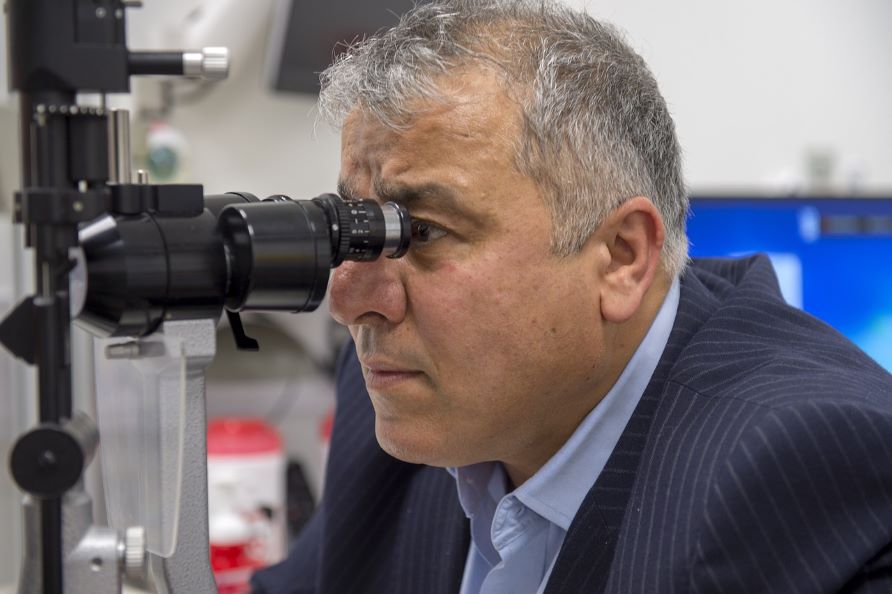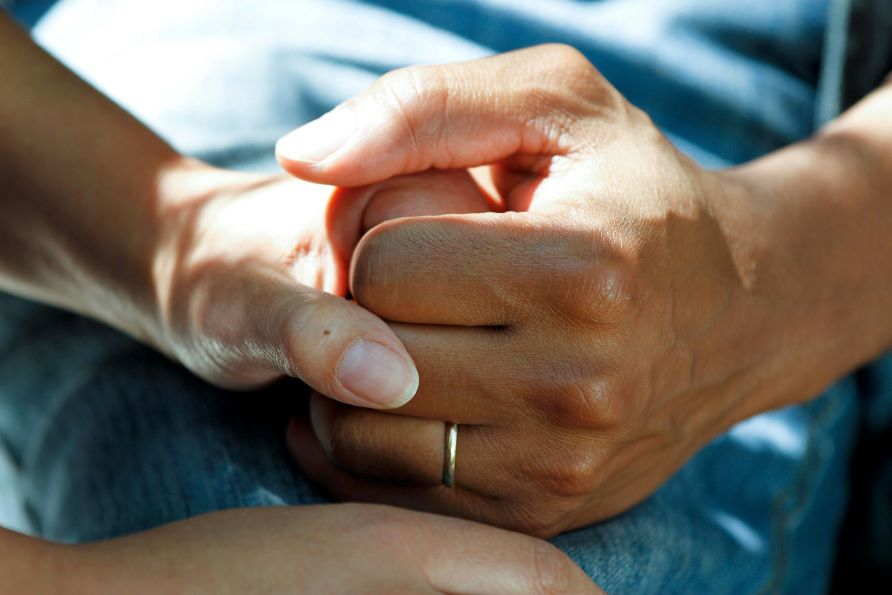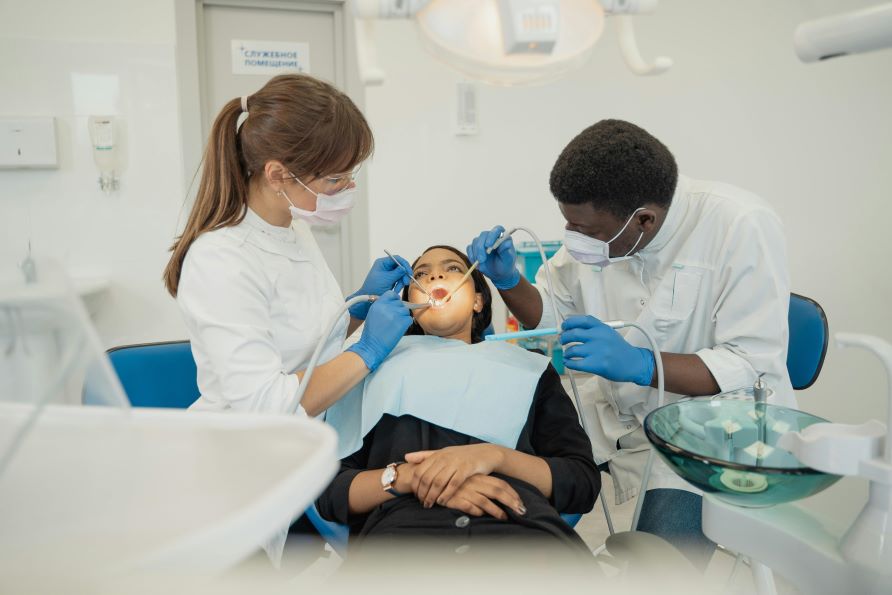
A Year of Evidence 2023/24 - Primary Care
13 November
In the first year of the Health and Care Research Wales Evidence Centre, we have conducted several critical studies focused on primary care. These studies have been carried out with the expertise and support of our stakeholders, collaborative partners, and our public membership group. Below, we highlight a few key projects that aim to improve the quality of primary care and offer evidence-based insights for decision-makers across Wales.
Reflecting on our first year of research, these studies emphasise the crucial role of evidence-based research in shaping primary care services across Wales. From improving eye health guidelines and understanding dental care needs to evaluating innovative schemes and palliative care models, our findings provide valuable insights for better health policy and practice.
All our research reports are made available to the public online. The reports include a 2-page Executive Summary (see pages 4 and 5 of the full report for this). Click the following links for information about each study, including helpful lay summaries and infographics.
Optometry - Prognostic Factors for a Change in Eye Health or Vision
Collaborating Partner: Health Technology Wales

We’ve all heard that regular eye exams are important, but there isn’t much strong evidence to tell us exactly how often we should be having them. This study, completed in January 2024, looked at existing research on eye health to help figure out the ideal timing for eye tests. The aim was to provide better guidance for the public and healthcare providers.
The research team reviewed studies from January 2009 to August 2023, focusing on eye health data from countries with similar eye health provision to the UK, such as the USA, Canada, and Germany. The review looked at 19 different studies, including cohort studies (which track people’s eye health over time) and systematic reviews (which systematically and scientifically summarise findings from multiple studies).
Certain factors, like gender, ethnicity, intraocular pressure (pressure inside the eye), and family history of glaucoma, were linked to changes in eye health. However, the study found that there was not enough evidence, especially for younger people under 40, to determine how often they should be getting their eyes tested. The review also looked at lifestyle choices such as diet, smoking, and exercise, but there wasn’t enough solid data to draw conclusions about their effects on eye health.
This study shows that we still need more research to make specific recommendations for how frequently people should have their eyes tested. Better communication between general practitioners, opticians, and patients is key. Improving this communication will help ensure that people are referred to specialist eye care when needed and prevent issues from being missed.
The findings of this study could help shape future eye care guidelines, ensuring people receive timely eye tests and care that’s tailored to their needs. This research will also inform future studies that aim to fill in the evidence gaps around optimum frequency of eye tests, especially for younger people and lifestyle factors that may affect eye health. By improving the timing of eye tests, problems can be caught and diagnosed earlier to help prevent future complications.
Palliative Care – The Costs and Cost-Effectiveness of Different Service Models
Collaborating partner: Bangor Institute for Health & Medical Research

In March 2024, we published a rapid review on the costs and cost-effectiveness of different palliative care models, particularly focusing on end-of-life care. The goal was to understand how care provided at home compares to care given in hospitals or hospices, and to find the most economical approach to delivering this essential service.
What did the study find?
- Home-based care is cost-effective | Providing palliative care at home was consistently found to be less expensive compared to care in hospitals or hospices.
- Hospital care costs more | End-of-life care in hospitals was notably more costly, especially during the last 30 days of life.
- Early consultations save money | Starting palliative care consultations early can help avoid unnecessary treatments and reduce overall costs. Advanced care planning, although more expensive, ensures that patients' wishes are respected and can lead to better end-of-life care.
This study highlights the economic benefits of home-based palliative care and the importance of early planning. By focusing on providing care at home and avoiding unnecessary hospitalisations, we can potentially reduce costs while ensuring that patients receive the care they prefer.
Healthcare planners are encouraged to prioritise home-based palliative care options and ensure that patients have the choice to stay at home if they wish, without having to compromise on quality of care. This approach not only respects patients' preferences but also helps manage overall healthcare costs more effectively. However, it also recognises the risk of passing the economic burden of the care to family or other caregivers.
Dental Services – Understanding Public Perceptions of NHS Dental Care
Evidence Centre in-house Primary Research Programme

In August 2024, the Evidence Centre completed a study which aimed to better understand how the Welsh public views NHS dental services. The team used interviews and focus groups to gather information on what people know about the services, what they think dental care should look like, and what their priorities are for the future, with a view to improving dental services and better meet the needs of the public.
The study focused on several key questions:
- How much do people know about the different roles within a dental team?
- What do people think about "skill-mixing" in dentistry?
- How do people feel about managing their own oral health at home?
- What are the public's views on new approaches, like tele-dentistry (remote dental consultations using telephone or smart technology)?
What did the study find?
- Many people didn’t know much about the different roles within the dental team, beyond the dentist and hygienist.
- There was confusion around when and how to get emergency dental care.
- People liked the idea of tele-dentistry (getting advice from a dentist online or over the phone), but they stressed that it should be optional and accessible to everyone.
- There was a strong desire for more education and support on how to take care of their own oral health.
The results of this study will help shape the future of NHS dental services in Wales. The public’s input is crucial in helping to inform how best to tailor dental services to the wishes and needs of the public. This includes making sure that people understand their options and have access to new services like tele-dentistry.
Gluten - Free Subsidy Card Scheme
Evidence Centre in-house Primary Research Programme

In Wales, people with Coeliac Disease (a gluten allergy: Gluten – a protein found in wheat, rye, barley, and other grains) can get gluten-free food via prescription. A new initiative introducing a pre-paid subsidy card scheme is designed to let these individuals buy gluten-free products from a range of high-street shops, instead of being limited to pharmacies.
This study looks at how the proposed pre-paid card scheme, currently being trialled in some areas of Wales, affects people’s experience, exploring any potential obstacles or downfalls to rolling out the scheme across Wales.
To understand the impact of the subsidy card, researchers interviewed people eligible for gluten-free prescriptions from all Welsh health boards. They spoke with those currently using the card, those who don’t yet have access to it, and those that have declined use of the scheme, to get a broad view of its benefits and challenges.